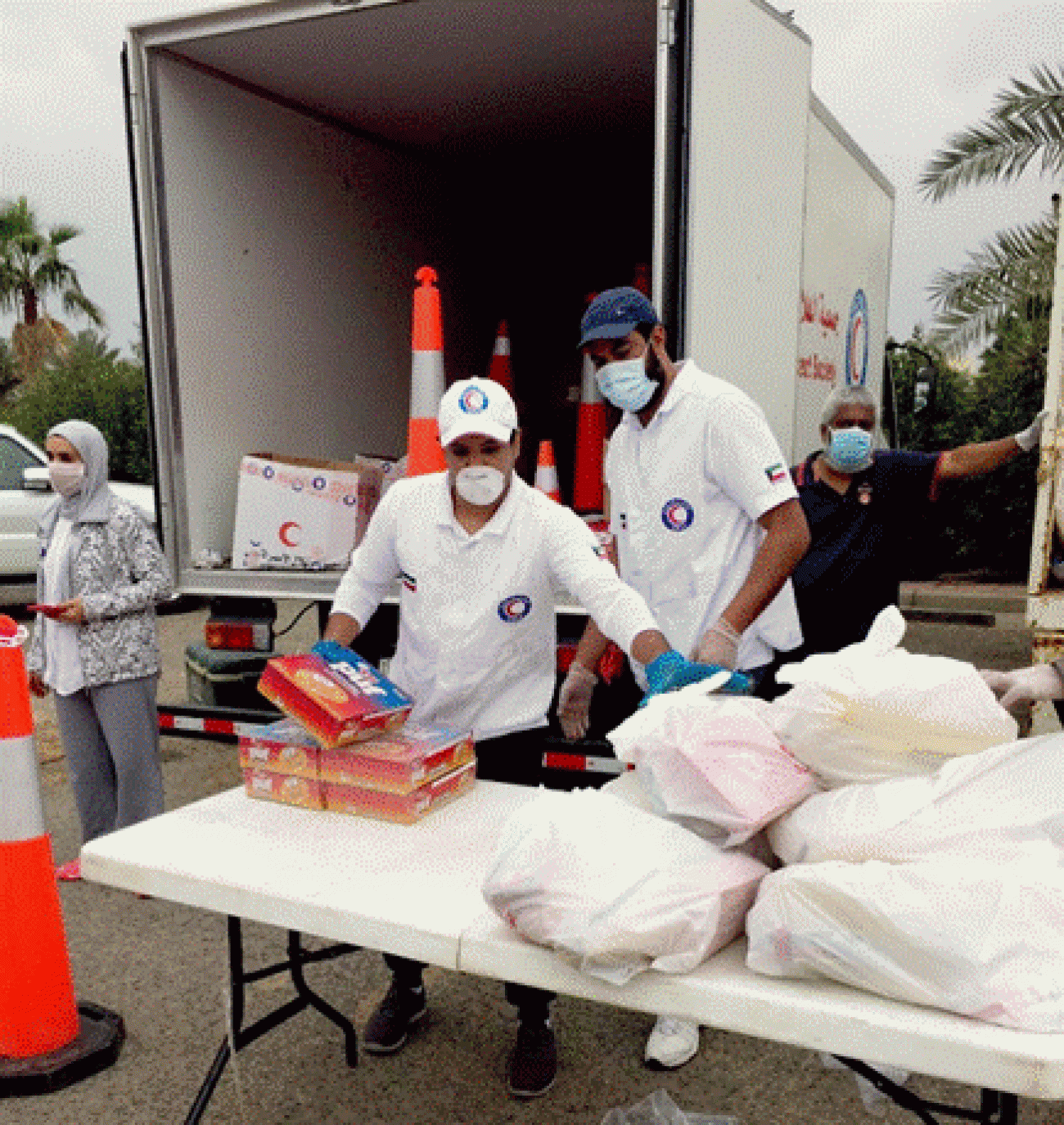The United Nations Moves to Support Kuwait Volunteers:

Through Manual development and Training during the COVID-19 Pandemic
Because of the speed of the pandemic spread and lack of access to food and commodities for some communities, many people, men, and women, stepped up to sign up for national volunteer scheme. This is a symbol of care and volunteerism we are all proud of.
Mr. Fuad Bu Shehri (a Kuwaiti volunteer expert) was overwhelmed with mixed emotions-hope and challenge and was proud seeing about 4,000 Kuwaiti volunteers teaming up to deliver humanitarian support to families in need and working at corporate societies as communities and people had to face supply-chain disruptions at the initial stage of COVID19 pandemic.
There were challenges in providing timely and effective training for national volunteers, and a need for a Volunteers Manual for individuals, governmental and non-governmental organizations to determine the regulations, conditions and mechanism of work to ensure the quality of participation and, to preserve the rights of volunteers by clarifying their duties, introducing them to means of protection and development of their capabilities.
Mr. Bu Shehri approached the Dr. Khaled Mahdi, the Secretary General of the Supreme Council for Planning and Development (GSSCPD) for his advice and recommended to meet with the United Nations Development Programme (UNDP) team and the Ministry of Social Affairs (MOSA) to support in the training and production of the Volunteers Manual. The United Nations Development Programme (UNDP), UN Volunteers (UNV) in collaboration with the Ministry of Social Affairs (MOSA) and the General Secretariat of the Supreme Council for Planning and Development (GSSCPD) partnered for establishing a “Volunteers Manual” and the organization of trainings specific to Kuwait context to be used as a handbook and resource for volunteers and employing institutions highlighting standard guidelines for the volunteers; providing a solid framework of what volunteers are expected to be doing and what decisions they can take. The manual also identified the code of conduct and ethics related matters.
“I volunteered in the Civil Defense in my desire to serve people since the alternative to volunteering was to stay at home after the suspension of schools and universities and the partial curfew imposed by the government. I was assigned to work in the Farwaniya Cooperative Society and took over the task of serving customers and sterilizing goods in place of the regular workers, whom the cooperative societies decided to grant the bulk of them paid leave. I also took on the task of ensuring that customers followed health and safety instructions imposed by the Ministry of Health." Volunteer Osama Walid said.
Quoting Volunteer Munira Al-Salem :” I participated in preparing food baskets for a charity. “We do this for free and without charge. Indeed, many volunteers spend their own money to help the needy and the poor or to buy food for security men, doctors, and medical staff”
Fuad Bu Shehri said: “Volunteering is not limited to university and school students and youth; employees and retirees were also involved as unknown soldiers who left their homes for the needy people to support migrant workers who are unable to return to their countries.”
The initiative succeeded to develop the first Kuwaiti Volunteers Manual and the necessary training materials to strengthen the skills and development at an operational level to perform their expected duties. Four trainings to volunteers, members of Civil Society Organizations (CSOs) and the Ministerial committee on volunteerism to learn the principles, code of conduct and guidelines to administer volunteering work, in addition to equip the participants to become the trainer of the trainers in their fields (e.g. education, public health, economic, community service, among others).






